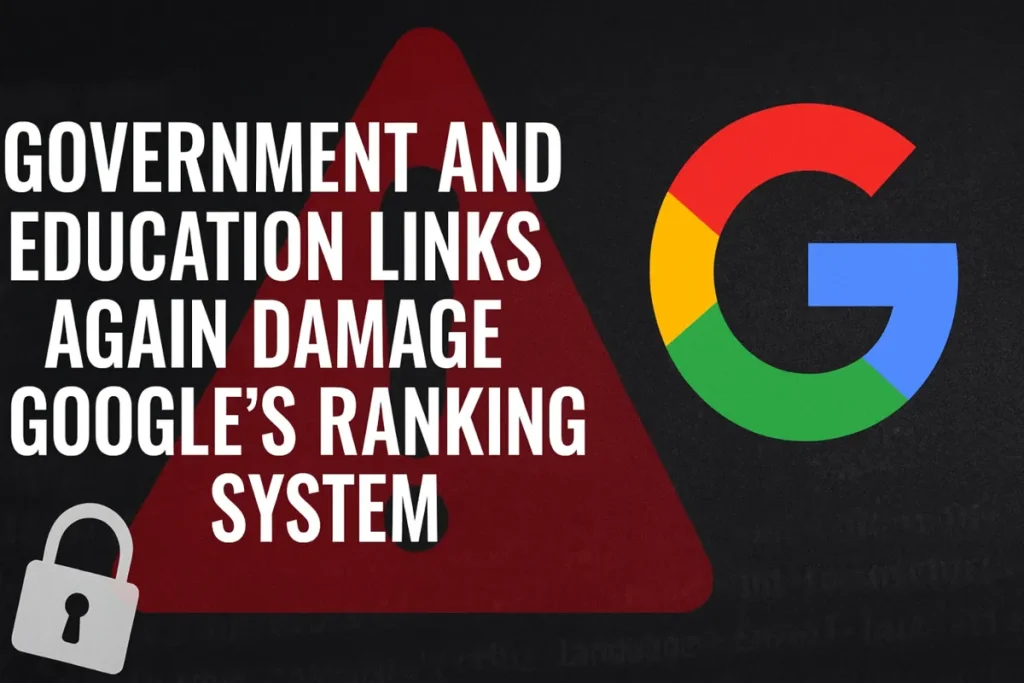Government and educational websites have traditionally been seen as highly trustworthy, often receiving special prominence in Google search results. However, this very trust and visibility have made them a prime target for hackers. By exploiting vulnerabilities on official websites, cybercriminals are able to insert malicious links, conduct phishing campaigns, and promote unsafe content, creating risks for users, brands, and institutions alike.

Why Hackers Target Government and Educational Links
Google’s algorithms treat .gov and .edu domains as highly authoritative, giving them a “space of trust” in search results. This makes links from these domains extremely valuable—not only for SEO—but also as a tool for malicious actors. Hackers exploit this by:
- Injecting phishing pages that mimic trusted brands.
- Promoting spam or fraudulent services.
- Redirecting users to unsafe external sites.
The authority of these domains amplifies the reach and perceived legitimacy of malicious content, increasing the potential for damage.
The Role of Google’s Algorithm
By giving prominence to government and educational links, Google inadvertently creates an incentive for hackers. A compromised .gov or .edu link can:
- Boost the visibility of malicious sites in search results.
- Make phishing attacks appear more credible.
- Influence users to trust content that is actually unsafe.
This dynamic shows how search engine trust mechanisms, while intended to highlight reliable sources, can be exploited when security is weak.
Impact of Misused Official Links
- Users: May fall victim to phishing, scams, or malware.
- Brands: Could be impersonated, causing reputational damage.
- Institutions: Risk losing public trust if their websites are compromised.
- Search Ecosystem: Google’s ranking system may be “manipulated” unintentionally through exploited authoritative links.
Recommendation Article : Google Indexing Crisis 2025
Preventive Measures
For Government & Educational Institutions:
- Regularly audit websites for vulnerabilities.
- Update CMS platforms and security protocols.
- Monitor and restrict user-submitted content.
For Users & Brands:
- Be cautious of links, even from official domains.
- Verify legitimacy before clicking or referencing.
Conclusion
The return of government and educational links in Google search highlights both opportunity and risk. Hackers are increasingly exploiting these authoritative links for phishing and other malicious activities, and Google’s trust system—designed to favor .gov and .edu domains—may unintentionally contribute to the problem. Vigilance, monitoring, and proper cybersecurity measures are essential to protect users, brands, and institutions from these threats.
Recommendation to Google:
It is highly advised that Google reconsider giving special prominence to government and educational links in search results. Many .gov domains have low Domain Authority (DA) and Page Authority (PA), and when hackers inject content optimized with keywords, these malicious or irrelevant pages can appear at the top of search results. This practice has already facilitated widespread phishing campaigns, harming SEO practitioners, business brands, internet users, and the general online ecosystem. A more cautious algorithmic approach—evaluating link content quality rather than domain label alone—could reduce the misuse of official links and protect all stakeholders.